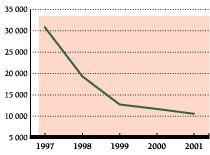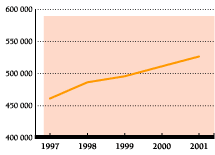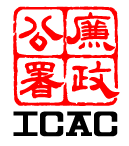-
The Hong Kong SAR Government has remained responsible for law and order
within Hong Kong, which includes maintaining the integrity of the sea
and land boundaries with the Mainland as a separate customs and immigration
territory.
Customs and Excise officers work closely with the Police and other international law enforcement agencies to combat the trafficking of illegal drugs. They are also responsible for preventing and detecting smuggling between Hong Kong and the Mainland and for protecting and enforcing intellectual property rights in Hong Kong.
Immigration officers are responsible for preventing, detecting and removing illegal workers. They also work with Police against illegal immigration, forged travel documents and foreign prostitutes.
The Immigration Department has regular dealings with locally-based foreign consulates to share intelligence and foster goodwill and co-operation on immigration control, facilitation of Hong Kong residents travelling overseas and the control of foreign nationals in Hong Kong.
|
Emigration 1997-2001
|
 |
In 2001, about 10 600 people emigrated - an 11% decrease over the 11 900 in 2000 and a 66% decrease since 1997.
In recent years, about 80-90% of all emigrants have gone to Canada, the United States or Australia.
|
Foreign residents* |
 |
|
*At 31 December each year
|
At the end of 2001, there were more than 525 000 expatriates living in Hong Kong, with sizeable groups from the USA, Canada, Australia, the United Kingdom and Japan. There were more than 235 000 expatriates from The Philippines, Indonesia, Thailand, India, Sri Lanka and Nepal who mainly work as domestic helpers.
Since July 1, 1997, more than 1.9 million HKSAR Passports had been issued by the Immigration Department. HKSAR Passport holders now enjoy visa-free access to 113 countries or territories, including the EU, compared to 47 countries in June 1998.
The greater acceptance of the HKSAR Passport as a travel document is evidence of international confidence in Hong Kong's immigration regime and the state-of-the-art security features embedded into the passport to prevent forgery or tampering.
At present, Hong Kong offers visa-free access for periods ranging from one week to six months to more than 170 countries and territories.
Corruption is not an accepted feature of Hong Kong. People do not like it and they have little tolerance for it. - 'Corruption in Asia', Political and Economic Risk Consultancy, March 6, 2002.
Pro-active and resolute action by the Independent Commission Against Corruption (ICAC) has continued to be a major force in providing a cherished level playing field for business in Hong Kong.
Concerns over the effectiveness of the ICAC after 1997 have long dissipated through continued and vigorous enforcement action. The public support rate hovers at 99%. There is no doubt that a culture of intolerance of corruption has firmly taken root in Hong Kong.
 |
The ICAC investigates corruption cases in both the public and private sectors. A 'zero tolerance' stance against corruption has rendered Hong Kong one of the world's cleanest administrations. Systemic corruption does not exist in the civil service.
The ICAC helps government departments and public bodies to rid their systems of corruption opportunities while assisting private companies to strengthen internal controls.
To maintain and enhance public support and vigilance against corruption, the ICAC produces educational and media programmes for all strata of the community. In addition, the Internet is also becoming a medium of choice for reaching the mass market.